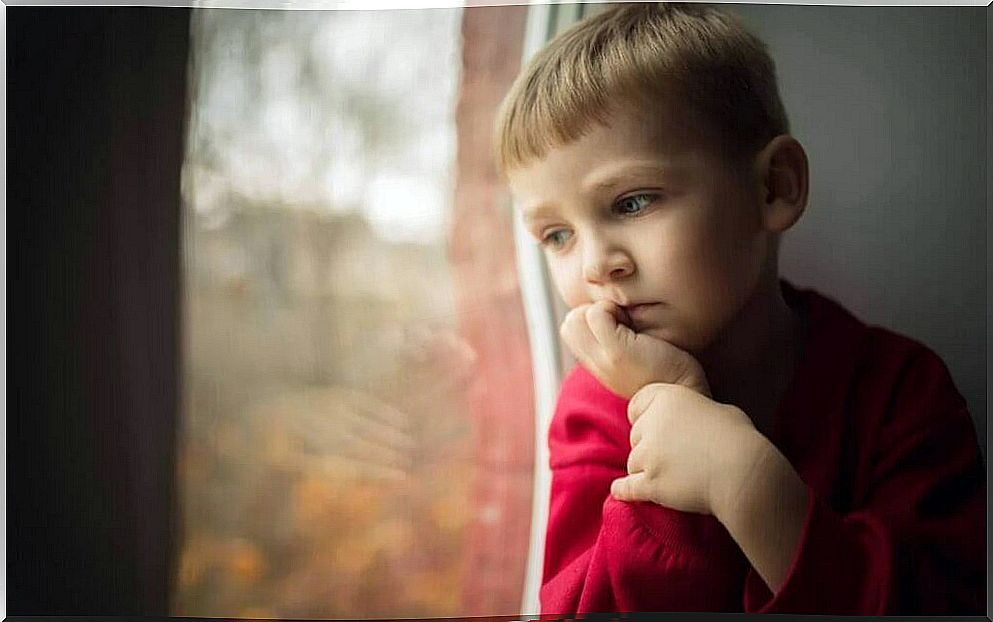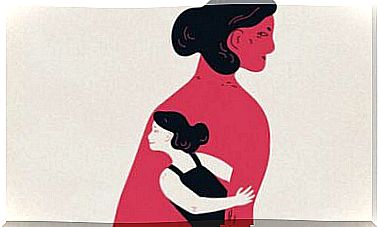Parents Who Gaslight Their Children (emotional Burnout)

There is a form of psychological abuse that we tend to associate with love relationships. We are referring to that form of abuse in which a person seeks to alter the perception of the other, making them believe that what they see, feel or believe is false. Now, it is important to know that there are also parents who gaslight their children and, therefore, seek to wear them out emotionally.
This term, gaslighting , constitutes a very insidious and deliberate type of manipulation that leads the victim to question himself about just about anything. Gradually, both self-esteem and identity itself become completely fragmented. This is the consequence of the actions of an aggressor who seeks, above all, to take control and project his frustrations onto the other.
While it is true that for years we have related this dynamic to the field of affective relationships, there is another invisible scenario that goes unnoticed. Many adults realize, sooner or later, that they too have suffered this form of abuse. However, the origin of this situation is not in a marital relationship, but in the family and one of the parents.
Suffering gaslighting in childhood has a much more detrimental effect in the long run. After all, a child does not understand that he is being manipulated, much less understand why a parent’s love is conditional. Let us therefore analyze this reality.

Parents who use gaslighting: characteristics and consequences
Psychiatrist Irvin Yalom explained in his book Love’s Executioner & Other Takes of Psychotherapy a case as shocking as it is illustrative of parents who practice gaslighting . One of his many patients was a woman who came to therapy because she was unable to get over the loss of her daughter, which had occurred more than ten years ago. During these sessions, a chilling fact came to light.
That woman had directed all her anger and disappointment to her youngest son, blaming him and sharing with him the idea that it was he, not his sister, who should have died. It is true that Dr. Yalom’s patient was suffering from unresolved trauma. However, almost without knowing it, he had exerted a profound and invisible abuse on a child who would have to face the enormous challenge of managing it.
On the other hand, it is interesting to know that it is not just psychology that is interested in this reality. Some studies, such as the one carried out by Dr. Paige Sweet of Harvard University, show that this is also a sociological phenomenon. According to this approach, the gaslighting emerges as an effect of power differences. It often stems from inequalities of gender, social class, and also the bonds between parents and children.
How are the parents who do gaslighting ?
The inoculation of guilt is the main instrument used by parents who perform gaslighting . They add small doses of guilt to almost every situation to increase the degree of control they have over their children. To describe it better, what they usually do is as follows:
- Parents can involve their children in situations where the little ones have no responsibility. If the couple’s relationship does not go well, the child is led to believe that it is their fault, for example.
- Sometimes the father or mother has a favorite child (the golden or trophy child). The other sibling suffers gaslighting when his parents make him believe that he is less valuable, that he behaves badly and that, therefore, he deserves less affection.
- Lying is also a resource to invalidate the child. For example: “Mom had a bad day at work because you made me angry this morning.”
- They underestimate or ignore any value or talent of their children.
- Any hobby, passion or possible interest of children is frequently attacked by gaslighting parents .
- On the other hand, they also tend to resort to social isolation. They seek to veto their children’s independence in order to have them always under their control.
Parents who use gaslighting : consequences of mental abuse
As we have already stated, there are many people who, only when they reach adulthood, do they realize that they have been victims of some form of psychological abuse. It is very common, for example, that many of these distorted schemes instilled by parents are part of your personality.
- A common consequence is not trusting your own judgments. When a person is led to believe that what he thinks, feels and thinks is wrong, he needs a lot of time to make his own decisions.
- On average, one effect of having suffered this abuse during childhood is the development of a certain personal insecurity and distrust of others during adulthood.
- Victims may have low self-esteem and identity issues.
- They get used to putting their own needs in the background.
- Another consequence is to internalize emotions, silence them, neglect them… All of this causes them to end up somatizing many of these states.

How to recover from a childhood of emotional exhaustion caused by gaslighting?
Parents who gaslight , as well as people who do gaslighting in their romantic relationships, do exist. As such, those who have been victims of this form of psychological abuse for a while rarely come out unscathed. There are those who overcome it, it is true, those who concentrate all their psychological pain on some distraction (work, hobby, sport…).
However, the wounds continue to bleed, often in the form of post-traumatic stress. It is important to consider that this series of circumstances experienced in childhood reveal a form of psychological abuse. Therefore, it is advisable to seek expert help.
The person must start a journey of renewal and healing in which they will need to meet and rebuild self-esteem and identity. It is also necessary to purge the mark of guilt that parents have projected onto their children over the years. It takes time to break free from the perspective instilled by a manipulator from which the victim is led to believe that nothing in her is valid or important.
However, it is vital to overcome this internal fracture to advance in integrity and wholeness.









